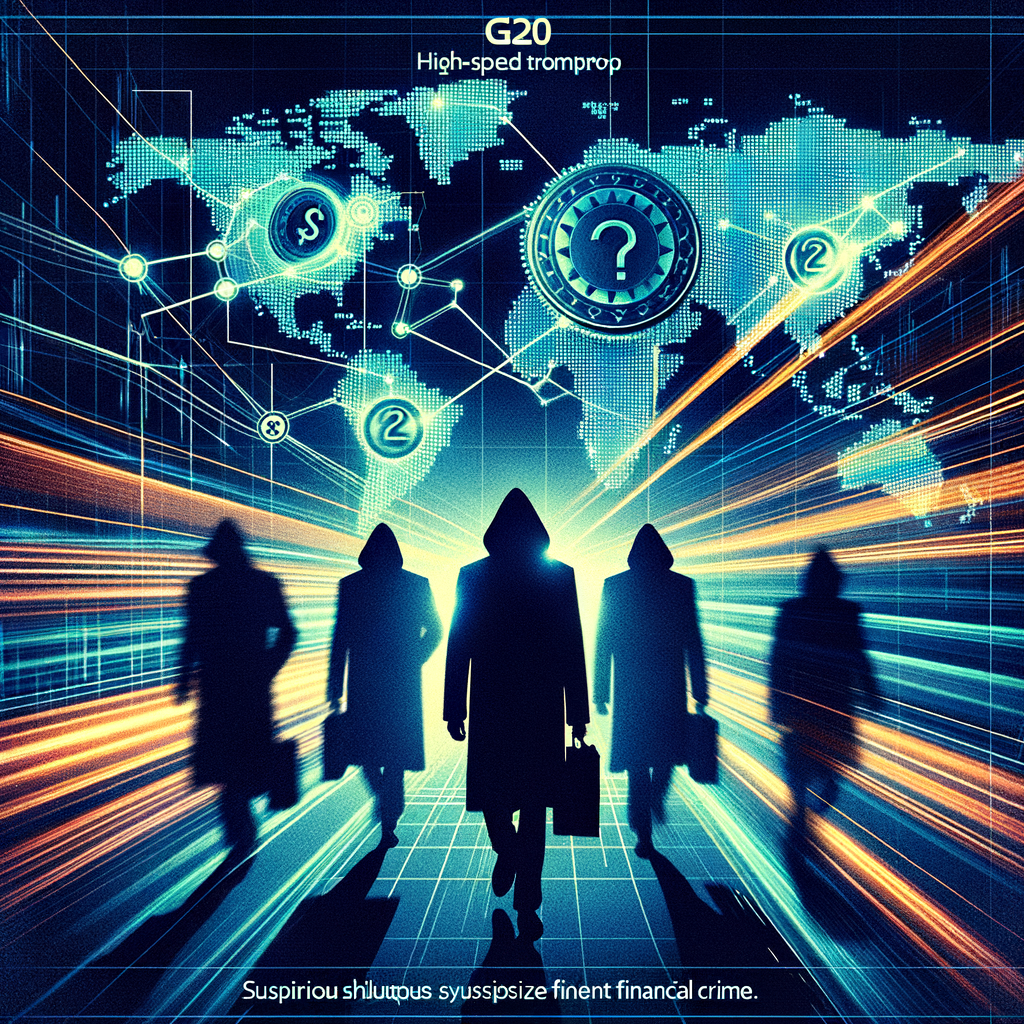Assessing the Risks: How the G20 Faster Payments Roadmap Could Impact Financial Crime
Title: Report suggests G20 faster payments roadmap may facilitate financial crime
In an era where the speed of transactions is often equated with the quality of service, the G20’s ambitious roadmap for faster payments is poised to revolutionize the financial landscape. However, a recent report cautions that this leap forward could inadvertently grease the wheels of financial crime if not carefully managed. Despite these concerns, there is an optimistic belief that with the right safeguards, the benefits of this initiative can far outweigh the risks.
The G20, a forum of the world’s largest economies, has been at the forefront of championing a more efficient global payments system. Their faster payments roadmap is designed to reduce the time it takes for cross-border transactions to clear, from days to mere seconds. This initiative promises to boost economic growth, enhance financial inclusion, and provide consumers and businesses with unprecedented convenience.
Nevertheless, the acceleration of payment processes raises some red flags. The report highlights that the reduced window for checking transactions could make it easier for criminals to move illicit funds undetected. Traditional banking systems have checks and balances that, while sometimes slow, allow for the monitoring and flagging of suspicious activities. The fear is that in a faster system, by the time a red flag is raised, the funds could have already changed hands multiple times, crossing borders and slipping through the cracks of international law enforcement.
Despite these potential pitfalls, there is a silver lining. The financial sector is no stranger to innovation, and with each new technology comes a suite of advanced tools for combating misuse. Artificial intelligence and machine learning are already being deployed to detect patterns indicative of fraud or money laundering in real-time. These technologies can be further honed to adapt to the rapid pace of transactions, ensuring that security measures keep pace with the speed of payments.
Moreover, the G20’s roadmap is not a reckless sprint but a measured journey. It includes provisions for building robust legal and regulatory frameworks to support the faster payments ecosystem. International cooperation is also a cornerstone of the plan, with countries sharing information and best practices to prevent and combat financial crime across borders.
The optimism surrounding the G20’s initiative is also fueled by the potential for economic empowerment. Faster payments can unlock opportunities for small and medium-sized enterprises (SMEs) by improving cash flow and reducing the friction of doing business internationally. For individuals, particularly in developing countries, the ability to send and receive money quickly and cheaply can be life-changing.
In conclusion, while the report’s concerns are valid, they are not insurmountable. The G20’s faster payments roadmap is a testament to the collective will of the world’s leading economies to forge a financial system that is not only faster but also safer and more inclusive. With a proactive approach to risk management and a commitment to innovation, the promise of this initiative can be fully realized. The journey ahead may be complex, but the destination—a world where financial transactions are instantaneous, accessible, and secure—is well worth the effort. As the G20 nations continue to lay down the tracks for this ambitious project, the global community watches with cautious optimism, ready to embrace the benefits while guarding vigilantly against the risks.
Navigating New Waters: The G20 Faster Payments Initiative and Its Implications for Financial Security
Title: Report suggests G20 faster payments roadmap may facilitate financial crime
Navigating New Waters: The G20 Faster Payments Initiative and Its Implications for Financial Security
In an era where the speed of transactions can make or break economies, the G20’s commitment to a faster payments roadmap is a bold stride towards modernizing global finance. However, a recent report cautions that this leap forward could inadvertently open floodgates to financial crime if not carefully managed. As we navigate these new waters, it’s crucial to balance the optimism surrounding this initiative with a clear-eyed assessment of the potential risks involved.
The G20’s initiative promises to revolutionize the way money moves around the world. By slashing transaction times, the plan aims to boost economic growth, enhance financial inclusion, and streamline cross-border trade. This is particularly significant for developing economies where access to quick and reliable financial services can be a game-changer for small businesses and individuals alike.
Yet, the very features that make faster payments so appealing also raise red flags for security experts. The speed of transactions means that the window for detecting and responding to fraudulent activity is significantly narrowed. Traditional banking systems often rely on a delay between transaction initiation and completion to identify suspicious behavior. With the proposed system, this buffer is all but eliminated, potentially giving criminals a fast lane to carry out illicit activities before they can be stopped.
Despite these concerns, there is a palpable sense of optimism among financial leaders. They argue that the same technology enabling faster payments can also be harnessed to combat financial crime. Innovations in artificial intelligence and machine learning offer sophisticated tools for real-time fraud detection, capable of analyzing patterns and flagging anomalies as they occur. The key lies in ensuring that these systems are as agile and advanced as the payment mechanisms they are designed to protect.
Moreover, the G20’s initiative is not just about speed; it’s also about collaboration. By fostering a global dialogue on best practices and security standards, the G20 is encouraging countries to work together to fortify their defenses against financial crime. This collective approach is essential, as the interconnected nature of modern finance means that vulnerabilities in one nation can have ripple effects worldwide.
The report’s findings serve as a reminder that with great power comes great responsibility. As we embrace the benefits of faster payments, we must also be vigilant in safeguarding the integrity of the financial system. This entails a continuous process of risk assessment, regulatory updates, and the adoption of cutting-edge security measures.
In conclusion, the G20’s faster payments roadmap is a testament to the transformative power of financial technology. While it presents challenges, it also offers an unprecedented opportunity to build a more inclusive and efficient global economy. By proceeding with cautious optimism and a commitment to security, the international community can ensure that this initiative not only speeds up transactions but also strengthens the trust upon which the financial system is built. As we chart this course, the report’s insights will be invaluable in steering us towards a future where faster payments are synonymous not just with efficiency, but with resilience against financial crime.







